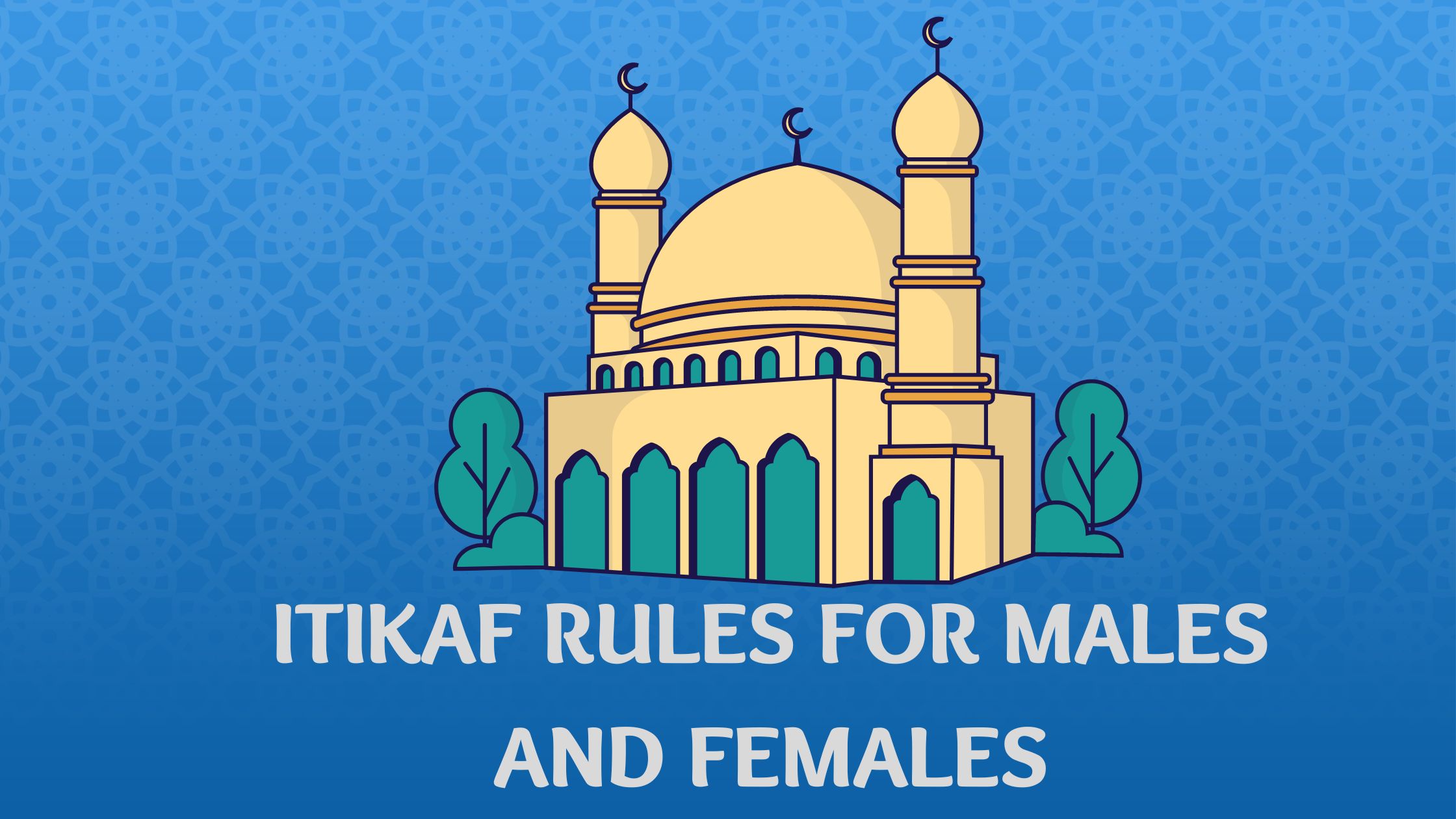Itikaf, a practice in Islam, involves secluding oneself in the mosque for worship and devotion to get closer to Allah. It can be classified into three types: nafl (optional), sunnah mu’akkadah (confirmed sunnah), and wajib (compulsory). While Itikaf during Ramadan is highly recommended, it is not obligatory unless one has made a vow to perform it. Itikaf entails following certain rules, including maintaining purity, intention, and engagement in worship activities.
Men usually perform Itikaf in mosques, while women may do so at home under specific conditions. During Itikaf, Muslims engage in various acts of worship and refrain from sinful behaviors. Itikaf offers numerous benefits, including spiritual retreat, strengthening one’s relationship with Allah, and protection against evil influences. Its importance during Ramadan, especially in the last ten days, is highlighted by its potential for immense spiritual rewards and the opportunity for intensified worship activities.
If you don’t know about Itikaf and want to learn about it, let’s take a closer look to better understand. In this article, we will know everything about Itikaf, what it is, its rules, benefits, and legitimacy.
Table of Contents
What is Itikaf meaing?
Itikaf, in Arabic, literally means holding fast to something—whether good or evil—while excluding everything else. But technically, Itikaf means isolation and staying at in the mosque to worship and get closer to Allah. At the very least, Itikaf is considered an act of joining forces to pray, remember, recite the Qur’an and withdraw from worldly affairs.
Is Itikaf in Ramadan Compulsory?
Performing Itikaf is considered compulsory just in one case if you have taken a vow to do so. Except for that, Itikaf is voluntary (optional Sunnah) to do. This takes us to recognize the types of Itikaf.
What are the Types of Itikaf?
There are three types of Itikaf; nafl (optional sunnah), sunnah mu’akkadah (confirmed sunnah) and wajib (compulsory).
- Nafl Itikaf (optional sunnah): It can be performed at any time of year and for any length of time as mustahabb (optional sunnah).
- Sunnah mu’akkadah (confirmed sunnah): This the Itikaf During Ramadan. The Prophet (blessings and peace of Allah be upon him) used to perform Itikaf for the last ten days of Ramadan. He continued to do so, but there is no evidence that it is compulsory. In this case, Itikaf is described as sunnah mu’akkadah (confirmed sunnah).
- Wajib (compulsory): Itikaf must be performed if you have vowed to do so because it has become obligatory. This type of Itikaf is depending on your niyyah (intention), as in this example: “If this occurs, I will do Itikaf for a specified number of days”.
The Prophet (peace and blessings of Allah be upon him), then said: “Whoever vows to obey Allah, let him obey Him, and whoever vows to disobey Him, let him not disobey Him.” (Narrated by al-Bukhari, 6696.)
And ‘Umar (may Allah be pleased with him) said: “O Messenger of Allah, during the Jahiliyyah I vowed to observe i’tikaf for one night in al-Masjid al-Haram.” He said: “Fulfill your vow.” (Bukhari 6697)
Now you have a question about the duration of Itikaf!
What is the Time of Itikaf in Ramadan?
You can start your Itikaf at any time of day or night and for how long you want, depending on your intention.
Simply put;
- Sunnah Itikaf does not have a set time.
- You will get Thawab as long as you stay at the mosque.
- You must reaffirm your intention if you plan to leave the mosque and return to perform Itikaf.
But, some rules of Itikaf will help you to get all/most of the benefits of your Itikaf. It will be listed below.
Itikaf Rules – How to do Itikaf in Ramadan?
You can do Itikaf when you follow the itikaf rules mentioned below. To achieve a state of mental calmness and spiritual peace as well as to purify and cleanse one’s inner being, you need to do Itikaf with some points as rules.
Itikaf Rules:
- Muslim: The essential rule of the Itikaf is to be a Muslim with a healthy mental status.
- The intention of Itikaf: Make your intention to perform Itikaf. You should be aware inside yourself that you intend to carry it out for Allah’s sake to devote time to performing Ibadah to please Allah.
- Taharah “purification: To fulfill Tahara’s requirement, you must maintain a neat and clean appearance.
- Keep Wudu: To adhere to the I’tikaf, you should maintain the state of wudu.
- Do types of Worships: Everything that is regarded as Ibadah (worship) is permissible in Itikaf:
- Performing prayers.
- Recitation of the Quran.
- Doing Taubah (repentance).
- Making dua with dhikr.
- Doing Nafl Ibadah and sunnah prayers.
Can Itikaf be done at home in Ramadan?
For Men: It is compulsory for men to perform Itikaf in a Masjid, where they may also perform the five prayers in the congregation. If he intends to perform i’tikaf for a specific time (short or long), he must carry it out as specified in his intention.
Itikaf For Females: Women also can do Itikaf in masjids if they have the required seclusion and conveniences. But if this is not the case, you tend to do Itikaf at home.
Itikaf Rules For Females
1. Choose the Right Place:
Choose a place where you will not be disturbed and can meditate peacefully. This area will function similarly to a masjid for you, so you are not permitted to leave this area unless you have a valid reason.
2. Your Hasbund Approval:
If you are a married woman, you can begin Itikaf with your husband’s approval (father’s permission, if you are not married).
3. No Sexual intercourse:
Women can touch and talk to their husband during Itikaf without any sexual lust.
4. No Period:
Menstruation and nifas can result in the cancellation of Itikaf.
What You are Allowed to Do During Itikaf?
The Muslims can do every daily staff during Itikaf such as eating, drinking, sleeping, or achieving something urgent are all acceptable.
You may step out of your meditation space if you have to use the bathroom or do Ghusl (bath for purification), for the Jummah prayer.
What You should not Do During Itikaf?
- Don’t forget the Niyyah (intention) has to be sincere.
- Avoid using foul and unnecessary talking, do only the necessary wordy talk.
- During Itikaf, Jima’ (sexual intercourse) is not permitted.
- Prevent yourself from falling into sins (however small or large).
- Avoid leaving the Masjid (mosque) without a valid reason.
What are the Benefits of Itikaf?
It is necessary to comprehend the purpose of Itikaf and why it is recommended, whether during Ramadan or at any other time.
- It was bestowed upon us for our spiritual retreat during Ramadan or any other time.
- Itikaf enables you to receive an award from more than one source.
- It is considered a great chance to create a pure relationship with Allah.
- Itikaf gives each person a self-care program to follow for the purification of heart and soul.
- Additional time to comprehend and memorize the Quran.
- One’s defenses against shaitan’s deceptions and temptations can be strengthened with Itikaf.
What is the Importance of Itikaf in Ramadan?
Do you intend to do Itikaf in Ramadan? Many Muslims devote their days and nights to the mosque (masjid), especially during the last 10 days of Ramadan to perform Itikaf.
The importance of Itikaf in Ramadan (in the last 10 days) manifested in:
- The great reward is equivalent to the reward of two Hajj and Umrah.
- Itikaf during Ramadan offers multiple rewards while performing Taraweeh, reciting Quran, and making dua and dhikr.
You can begin Itikaf after the 20th of Ramadan’s sunset and end it when the Eid moon is sighted are its sufficient time. The Sunnah remains unchanged whether Ramadan lasts 29 or 30 days.
Learn the Quran Online With Bayan al-Quran Native Arab Tutors:
Embark on a transformative journey of Quranic learning with Bayan Al-Quran’s comprehensive online courses. Our platform offers an authentic and immersive experience tailored to learners worldwide. Whether you’re a beginner or seeking to enhance your skills, our Tajweed courses provide expert guidance and structured learning to master the art of Quranic recitation.
🎓 Expert Guidance:
Benefit from experienced instructors who specialize in Tajweed, breaking down complex rules into manageable segments for learners of all levels.
✨ Key Features:
- Structured, step-by-step learning approach.
- Access to high-quality instructional materials.
- Real-time feedback from qualified tutors to enhance your practice.
- Flexible learning schedules to accommodate your pace and convenience.
- Immerse yourself in the melodious tones of Quranic recitation, enriching your spiritual experience.
🌟 Why Choose Bayan Al-Quran?
Join our vibrant community dedicated to perfecting Quranic recitation. Build a profound connection with the divine words of the Quran and enrich your spiritual journey. Choose Bayan Al-Quran for a transformative learning experience and embark on a path to mastering Tajweed with confidence.
You can also attend online Quran and Arabic Classes with Bayan al-Quran with Native Arab tutors. There are also several courses that can help you in this regard:
- Learn Quran Online With Tajweed For Kids And Adults
- Learn Arabic Online Course
- Islamic Studies Online Course
- Noorani Qaida Online Course For Kids And Adults
Conclusion:
In conclusion, Itikaf in Islam is a significant act of devotion and worship, offering Muslims an opportunity to engage in spiritual retreat and deepen their connection with Allah. While Itikaf during Ramadan is highly recommended, its practice varies based on individual intentions and circumstances.
By adhering to the rules and guidelines of Itikaf, believers can experience spiritual growth, purification of the heart, and protection against worldly temptations. Its importance during the last ten days of Ramadan underscores its potential for immense rewards and blessings, making it a cherished tradition among Muslims seeking closeness to Allah and fulfillment of their religious duties.
Because Ramadan is one of the greatest blessings that a Muslim can receive. You may obtain rewards for the present moment and the months ahead until the next Ramadan. May Allah strengthen us to use this Ramadan in a better way! Ameen.
Save the article for review, even if you do know everything about Itikaf. The friendly reminder is a great motivator!

















